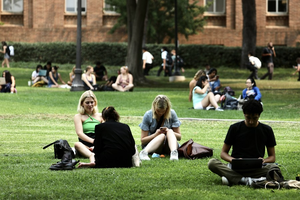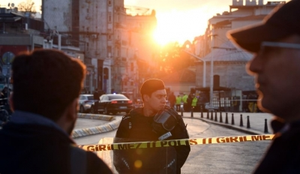At UNGA, India condemns Hamas terrorism; large-scale civilian deaths in Israel retaliation
United Nations, Nov 29 (IANS) At the UN General Assembly meeting on Palestine, India condemned both the terrorism with hostage-taking by Hamas and the “large-scale loss of civilian lives” in Israel’s retaliation, but did not directly name either of them.
While expressing support for a Two-State Solution for Palestine and humanitarian assistance to it, India’s Permanent Representative Ruchira Kamboj said on Tuesday: “The immediate trigger (for the crisis) was the terror attacks in Israel on October 7, which were shocking and deserve our unequivocal condemnation. There can be no justifications for terrorism and hostage-taking.
“India has a zero-tolerance approach to terrorism.”
On the crisis that spiralled with Israel’s retaliation, Kamboj said: “We are gathered today at a time when the security situation in the Middle East is deteriorating due to the ongoing Israel-Hamas conflict, with large-scale loss of civilian lives, especially women and children and an alarming humanitarian crisis.
“This is clearly unacceptable and we have strongly condemned the death of civilians.”
In the Hamas attack, more than 1,200 people were killed in Israel and about 240 were taken hostage.
Israel’s retaliation mainly through aerial bombings has claimed over 14,800 lives, according to the Gaza Health Ministry under the control of Hamas.
After intense diplomatic efforts by the UN and Qatar, Israel agreed to a four-day truce that began on November 24 and was extended for two more days on Tuesday, allowing more relief supplies into Gaza, while Hamas consented to free some hostages taken during the October 7 attack.
Kamboj welcomed the humanitarian pause in the Hamas-Israel conflict and the release of some hostages and called for the release of those still remaining.
“The humanitarian pauses is a welcome step to ensure timely and continuous delivery of humanitarian aid,” she said.
India has sent 70 tonnes of humanitarian aid including 16.5 tonnes of medicines and medical supplies to Gaza, she said.
New Delhi abstained on an Assembly resolution last month calling for a humanitarian truce in the fighting “leading to a cessation of hostilities”, which was adopted with 121 votes, while supporting a failed amendment that sought to condemn terrorism.
This was the first time that India did not vote for a resolution at the UN that was backed by Palestine and it raised speculation about New Delhi’s commitment to the Palestinian cause as it develops closer relations with Israel.
Allaying any misgivings that India was moving away from the Palestine cause, Kamboj reiterated India’s support for it to emerge as an independent nation alongside Israel under what is called the Two-State Solution.
“India has always supported a negotiated the Two-State Solution to the Israel-Palestine issue leading to the establishment of a sovereign, independent and viable state of Palestine living within secure and recognized borders, side-by-side in peace with Israel,” Kamboj said.
“Our long-standing relationship with the Palestinian people, based on deep-rooted historical and people-to-people ties, and our consistent support to the people of Palestine in their endeavour for statehood, peace and prosperity,” she reaffirmed.
India “will continue to support the Palestinian people through our bilateral development partnership” and “continue to send humanitarian assistance to the people of Palestine”, she added.
Kamboj also hit out against Pakistan’s attempts at the UN to link the Palestine tissue to Kashmir.
“With regret, it is necessary to address the unfortunate and gravely misleading statements made by a fellow delegate,” she said without naming Pakistan.
“Such a pattern of distortion and malice can only be met with our profound sympathy for the mindset that perpetuates these untruths.”
India, she said, will not waste the Assembly’s time by exercising its right of reply and remarked that New Delhi’s position can be seen in previous rights of reply.
In those replies, India has reiterated that Kashmir is an irrevocable part of India and that the people of the union territory have through their votes affirmed its accession to India.
Speaking at the UN Security Council session last week on sustaining peace through development, Pakistan’s Permanent Representative Munir Akram brought up the Kashmir issue.
“No amount of development can bring peace when peoples are suppressed by foreign occupation and forcibly denied of their right to self-determination as is happening in Palestine today and in Occupied Jammu and Kashmir,” he had said.
Last month at a meeting of the Assembly’s Special Political and Decolonisation Committee, Pakistan’s Counsellor Naeem Sabar objected to Kashmir being a part of India.
(Arul Louis can be contacted at arul.l@ians.in and followed at @arulouis)
–IANS
al/ksk




